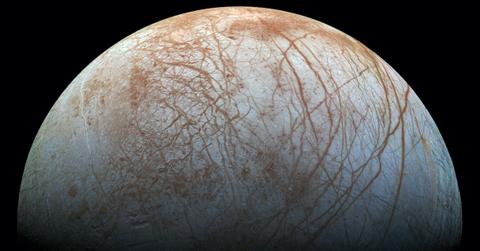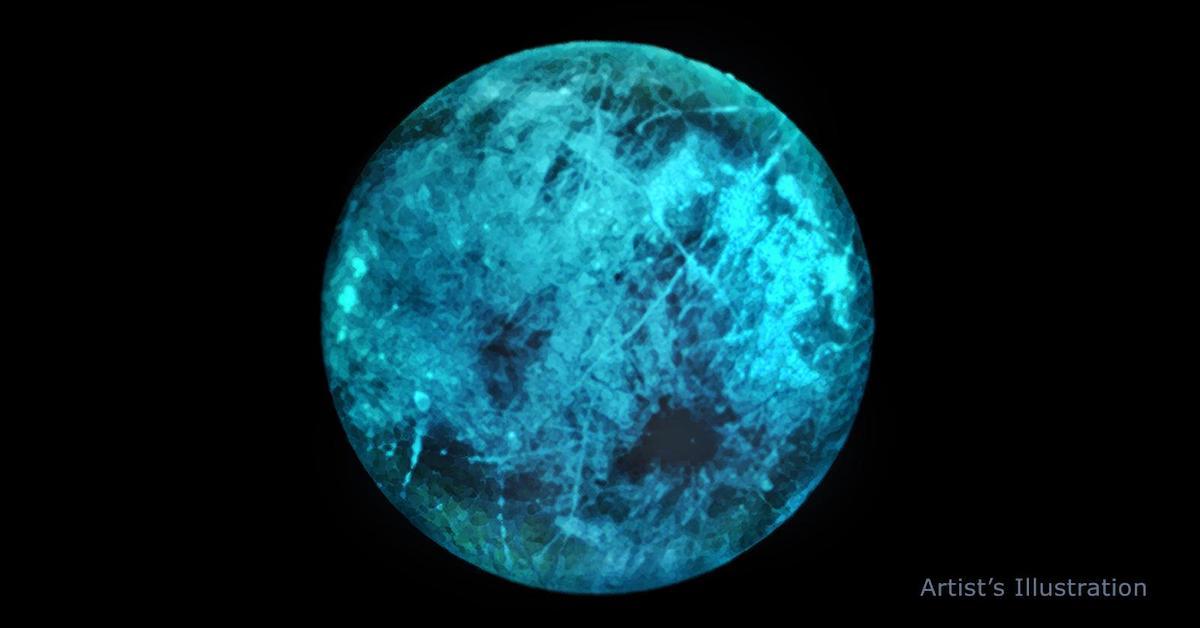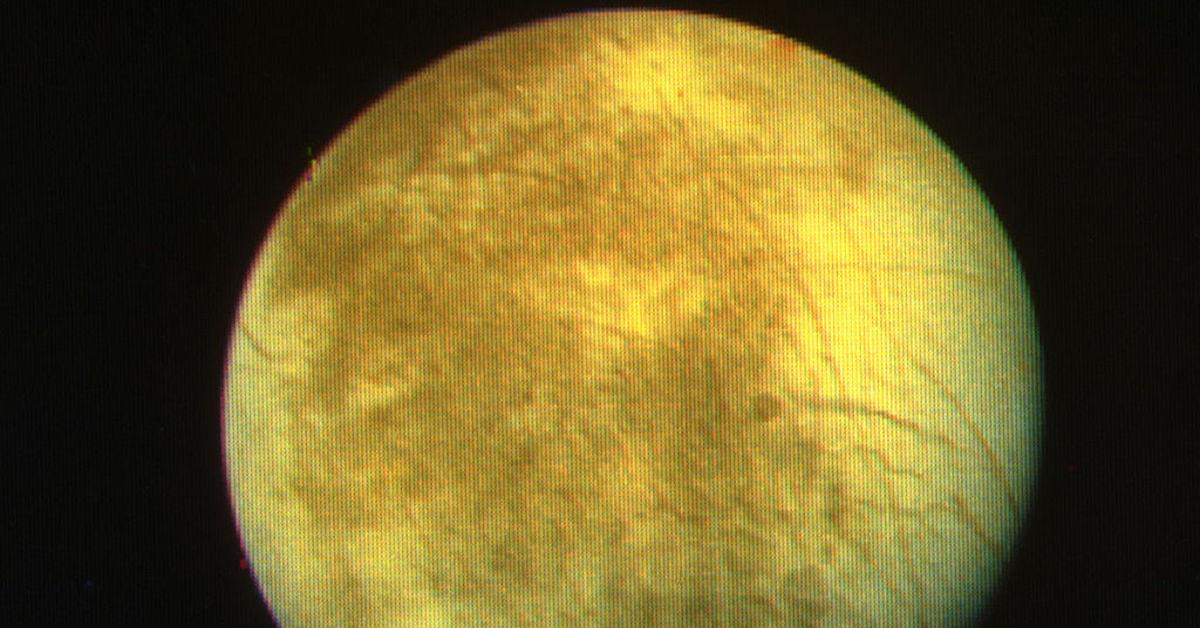Scientists Discovered That One of Jupiter's Moons Might Glow in the Dark
Published Nov. 9 2020, 5:16 p.m. ET

The most interesting planet in our solar system is undoubtedly the fifth planet from the sun, Jupiter. Not only is the bright, burning red planet the largest in our solar system, but it also has the most moons, and all 79 of them are incredibly diverse. In fact, recent studies surrounding one of Jupiter's moons, Europa, deduced that it may glow in the dark, making it a seriously unique celestial body.
"We never imagined that we would see what we ended up seeing," said Jet Propulsion Laboratory's Bryana Henderson, one of the brains behind the research. "When we tried new ice compositions, the glow looked different."
Keep reading for everything you need to know regarding Jupiter's Europa, and why it's unique from Jupiter's other moons. The latest findings are seriously breathtaking.

Scientists believe Europa glows in the dark because of radiation.
As Europa orbits Jupiter, it's continuously inundated with radiation, electrons, and other particles, according to studies conducted by NASA and California Institute of Technology's Jet Propulsion Laboratory. Although scientists had already assumed the moon's composition, they realized the combination of salt, water, and radiation, along with the electrons and molecules beneath the ice may cause the moon to glow — even on its nightside — which means it illuminates even without sunlight.
"If Europa weren't under this radiation, it would look the way our moon looks to us — dark on the shadowed side," Gudipati said in the press release. "But because it's bombarded by the radiation from Jupiter, it glows in the dark."
Take a look at an artist's rendering of what the moon presumably looks like, below, even on its nightside. It truly looks unlike anything we've ever seen.

Scientists used a spectrometer to discover that Europa most likely oscillates between radiating a hue of blue and green. The exact color, however, seems to depend on the composition of ice on the moon's surface, which changes frequently because of the moon's interior ocean.
"Seeing the sodium chloride brine with a significantly lower level of glow was the 'aha' moment that changed the course of the research," said Fred Bateman, co-author of the study, who aided in the experiment.
The results of the study may also indicate there could be life underneath the moon's ocean.
The results the spectrometer's findings may also ultimately give clues regarding if there is any aquatic life on Europa. Although the surface's ice is relatively thick, scientists believe there could be some sort of life beneath the ice's surface, within Europa's vast ocean.
"We were able to predict that this nightside ice glow could provide additional information on Europa's surface composition. How that composition varies could give us clues about whether Europa harbors conditions suitable for life," said JPL's Murthy Gudipati, lead author of the work published Nov. 9 in Nature Astronomy.

Europa is certainly a one-of-a-kind moon, and while we definitely wish it was more easily visible from Earth, we're definitely looking forward to more renderings — and hopefully — some photos in the near future.